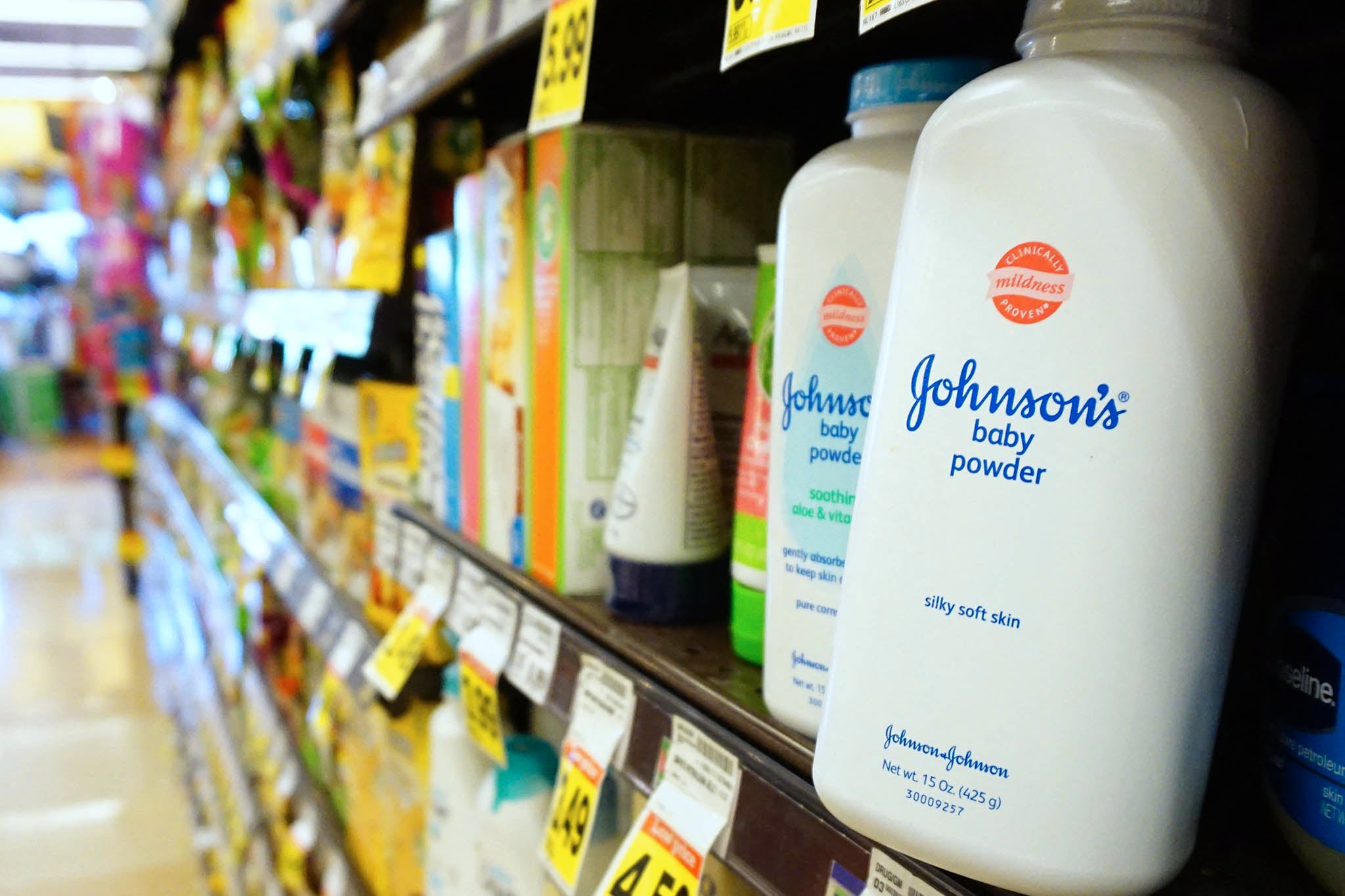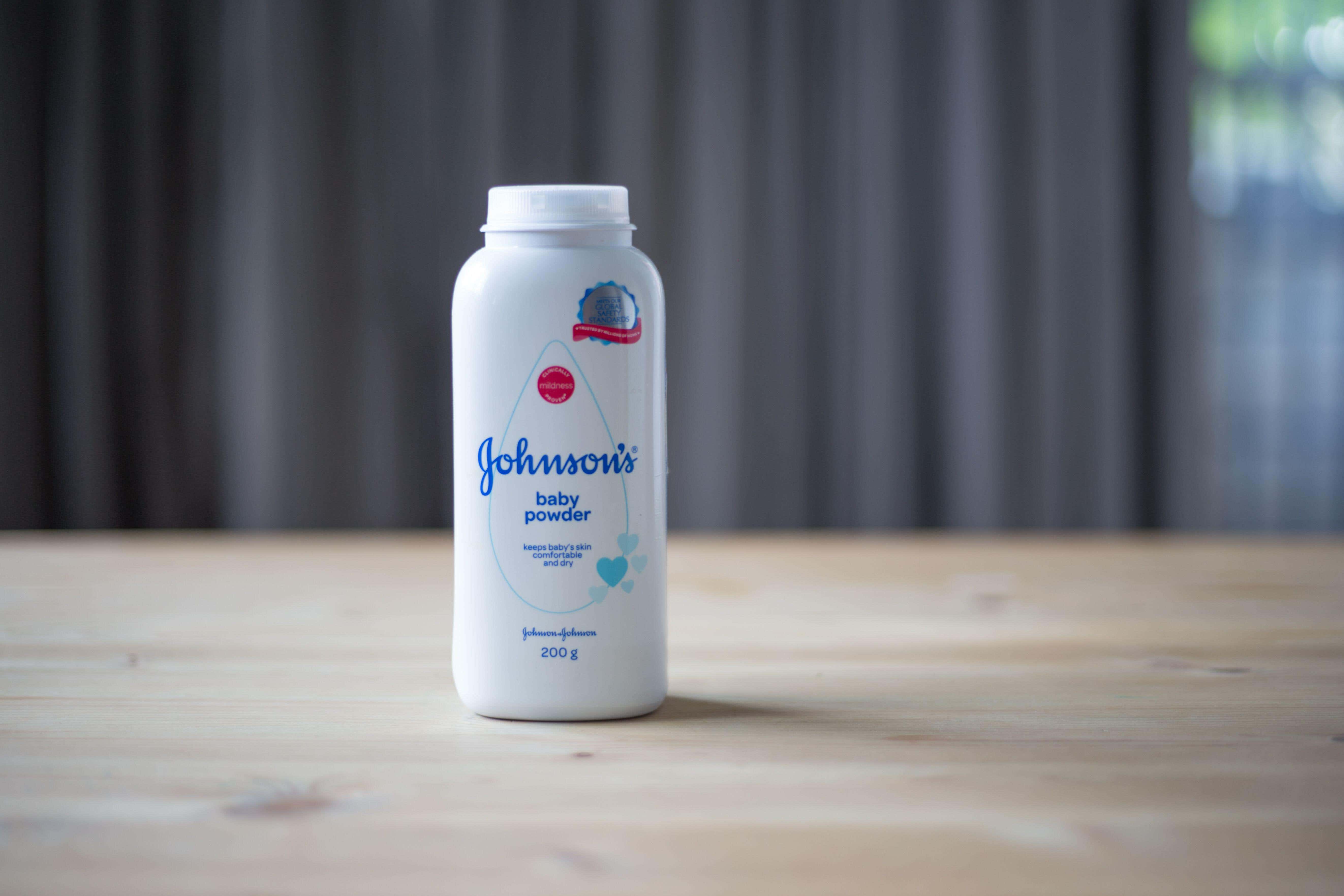A woman blames talcum powder for her ovarian cancer diagnosis and says she feels “betrayed” by the manufacturer.
Jane Campbell, who lives in Rochdale, is one of thousands of women in the UK who are planning to take legal action against one of the world’s biggest pharmaceutical companies, Johnson & Johnson, over an alleged link between talc and cancer.
Lawyers argue that the US-based multinational knew that asbestos in its talc products was dangerous from the 1970s onwards, but failed to warn customers and continued to manufacture and sell the products in the UK until 2022.
Johnson & Johnson has denied any liability, saying independent science “makes it clear that talc is not associated with the risk of cancers claimed by the claimants.”
Ms Campbell, who is 52, said her parents used talcum powder on her after bathing when she was young and used it on herself and her children as adults. He always considered it a safe product.
About her cancer diagnosis, she said she sought medical help after experiencing severe constipation and bladder incontinence, and sometimes wetting herself when she stood up.

Ms Campbell, who works as a human resources manager, said she was later diagnosed with ovarian cancer in September 2021 but had to use private healthcare after delays on the NHS.
“It was very upsetting because I had just lost my father,” she said of her diagnosis. My husband had two heart attacks in March and April and then my father died in April.
My father literally did not wake up one morning. “I knew ovarian cancer was one of the worst cancers we could have.”
He had recently found out his son and his girlfriend were expecting twins and thought he would never be able to meet them after the diagnosis.
“I’m devastated,” Ms Campbell added. “I thought, ‘I don’t want to die’. I don’t want to leave my husband or my children and how is my mother going to cope.”
She then had to quickly undergo a radical hysterectomy, which involved removing her ovaries, uterus, appendix and cervix, and part of her stomach plate was removed as the cancer spread.
“I was an emotional wreck,” she recalls. “I was almost planning my own funeral. I did not sleep, it was constant. I might fall asleep and wake up in the middle of the night and nod off at maybe 4 or 5 – I was so scared.
Ms. Campbell explained that she had no idea about the alleged link between talc and cancer during the course of treatment. She said she only became aware of the alleged connection after starting an ovarian cancer support group on Facebook.
“I’m bummed – again, it’s a product that’s always been trusted,” he said. The name J&J is a trusted brand because it is associated with children: kind, caring, soft and gentle. I felt betrayed if I had known I would have stopped using it – would I be in this position?
He said he had undergone six rounds of chemotherapy and six rounds of immunotherapy and had been on chemotherapy pills for two years.
Ms. Campbell explained that she had two colon surgeries this year for cancer and nearly died of sepsis. He is now recovering.
“I don’t eat out because I’m afraid of getting a stomach bug that could potentially flare up the sepsis again because my immunity was so low and I had sepsis and I almost died,” she said. “The consultant in the intensive care unit didn’t think I could do it.”

KP Law, the law firm leading the battle against Johnson & Johnson, has issued a letter to its clients before taking action – Johnson & Johnson has until the end of this year to respond. After this stage, the documents are filed in the Supreme Court.
The law firm says it has been contacted by 4,000 potential claimants and is currently representing about 2,000 people in connection with talcum powder allegations.
Tom Longstaff, the lawyer leading the UK case, said: “All the claimants, mainly women but also some men, who developed cancer after using J&J talcum powder products, have experienced a life-changing illness.
In some cases, they have lost their lives to cancer and devastated their families. All these innocent people deserve justice.
There are thousands of women in the UK who have developed cancers identified as being linked to talcum powder use and may have a case against J&J, along with a smaller proportion of men with regard to mesothelioma and mesothelioma. Peritoneal cancer.”
Eric Haas, global vice president of litigation at Johnson & Johnson, added: “Kenvo, which sells talcum powder products and is responsible for any related liability outside the United States or Canada, separated from Johnson & Johnson in 2023.
Johnson & Johnson takes the issue of talc safety incredibly seriously and always has. As our documentation demonstrates, we have relied on state-of-the-art testing protocols for decades and have been completely transparent about our findings with government agencies and academic researchers.
These findings equally show the absence of asbestos contamination in Johnson’s baby powder and talc prepared for Johnson’s baby powder. Independent science clarifies that talc is not linked to the risk of ovarian cancer and mesothelioma.








